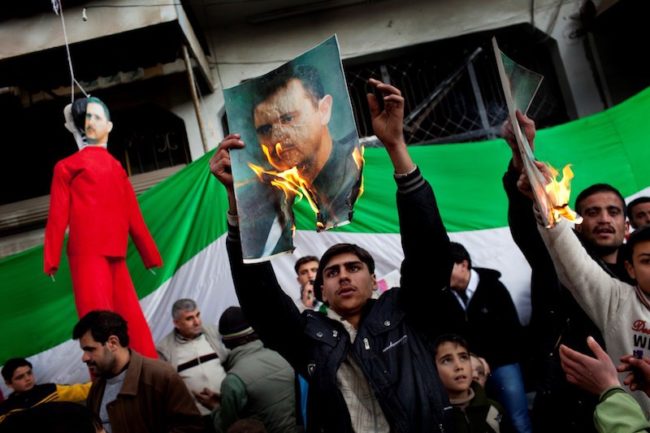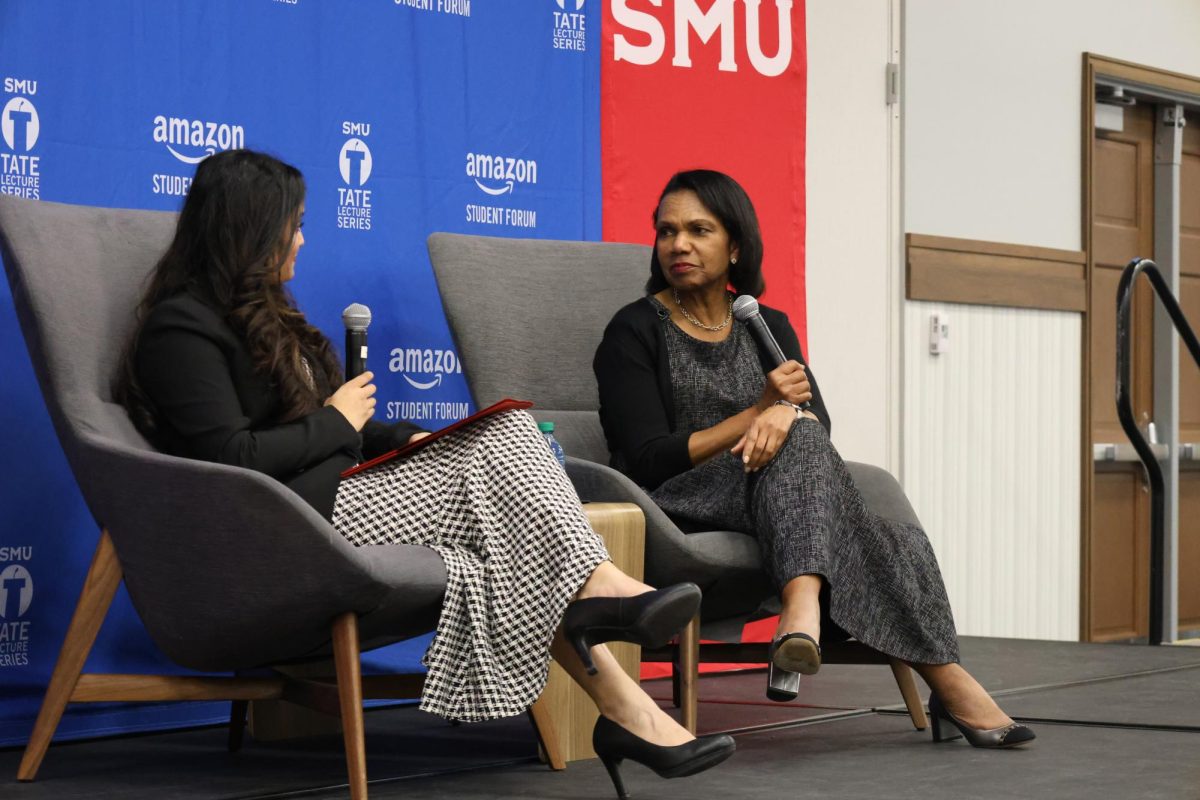President Trump made headlines for several of his comments at the UN on Sept. 26. One of those comments was a claim that he deserves the credit for saving Idlib. But what is Idlib? And should Trump be taking credit for it? Here’s what you need to know.
What is Idlib?
A small region in Syria.
Reminder: Syria is in the midst of a civil war that began in 2011 as part of the Arab Spring. According to the UNHCR, over 5.6 million people have fled Syria since 2011. For reference, the population of Dallas is roughly 1.3 million, that is 4.3 times the population of Dallas has fled Syria in the past 7 years.
What’s happening there?
Conflict seems imminent. Idlib is the last rebel stronghold in Syria. Idlib also happens to be the place where big international players, like Russia and the U.S., have interests that intersect.
Who’s on what team?
In Syria President Assad is the leader. Russia and Iran are the two of Assad’s biggest international supporters.
The rebels don’t have a clear leader, which has created a power vacuum in the region. Some terror groups, like Islamic State (IS), have taken advantage of the lack of leadership. The U.S. has supported the moderate rebel groups who are fighting against both President Assad and IS. Turkey is also a member of the Rebel team.
Why is this big news now? The conflict has been building for years.
Idlib has become the perfect storm.
Assad is motivated to take Idlib back because it’s the last rebel stronghold. If he can gain control of the territory, the multi-year civil war might come to an end.
There are as many as three million civilians trapped in Idlib. If Syria does engage in warfare, we could see a mass-casualty situation.
Syria and Turkey are neighbors. Turkey is already hosting 3.5 million Syrian refugees. With this massive influx of people and an economic crisis, Turkish citizens are getting ready to roll up the welcome mat. Because of this, Turkey is hoping to prevent any military action that would lead to more refugees fleeing across the border.
Note: Amnesty International defines a refugee as a person who “has fled their own country because they are at risk of serious human rights violations and persecution there.”
Where are we now?
Russia and Turkey have declared a truce, sort of. They have agreed to a demilitarized zone in Idlib. This is a small step in the right direction, but the demilitarized zone only covers 12 miles. This agreement is what Trump took credit for in a UN speech.
“The U.S. does not appear to have played a role in any postponement of any attacks on Idlib,” Ambassador Robert Jordan, former ambassador to Saudi Arabia and SMU’s diplomat in residence, said. “The presence of U.S. forces in the eastern part of Syria is a potential deterrent of military activity in that area, but the U.S. is not directly involved in any attempt to either protect or attack any of the parties that are in the zone surrounding Idlib.”
Tensions in the region are still building. On September 18, Syrian forces accidentally shot down a Russian plane. Russia blamed Israel for the confusion that caused the incident. The next week Russia announced that they will send an S-300 system to Syria (Syria and Israel are neighbors). This “gift” will significantly increase Syria’s military capabilities.
“It’s unclear whether the S-300 would protect airspace only around the Russian air-base and naval base, or whether it would be deployed throughout the country,” Jordan said. “The Israelis are to some degree use to countering air defense systems, so the fact that that the S-300 would be deployed does not mean that the Israelis are hopeless in their effort to project power into Syria, but it does make it more difficult.”
What is the US doing?
The U.S. is in a precarious position. We’ve been trying to phase out of the Middle East for a few years now, but those efforts haven’t been 100% effective. Both Trump and Obama have stated that the US will not tolerate the use of chemical weapons. You might remember the US airstrike in Syria earlier this year that targeted “fundamental components” of Syria’s chemical weapons structure. In a House committee meeting, U.S. security advisor John Bolton said that the US won’t leave Syria until Iran does.
“Overall most American policymakers recognize that if American military presence recedes that there is a very good chance that Islamic State, Al Qaeda and its affiliates could fill the vacuum and create conditions that could be ultimately dangerous for the United States,” Jordan said. “It’s most likely that American military presence will remain in at least a limited way in Syria for some time to come.”
Have the events in Syria impacted us here?
Over 20,000 people have come from Syria to the United States since 2011. Vickery Meadow, located about four miles north of SMU, is a neighborhood in Dallas known for housing refugees and immigrants. Many of the refugees who live there come from Syria.
“The plight of the Syrian refugees has made us more aware of the plight of refugees around the world,” Jordan said. The number of refugees who have fled to Europe through Turkey have “led to more nationalist and anti-immigrant sentiment in Europe, which has some contagion with anti-immigrant sentiment in the United States as well.”
He doubts that the anti-immigrant sentiment will last forever.
“We will eventually see a more welcoming attitude toward legal refugees. Right now the immigration issue has gotten confused and people are conflating illegal immigration with legal immigration. And that brings suspicion and antagonism toward any kind of immigration at all. America desperately needs well-educated, strong, loyal immigrants coming into the country. That’s what we were built on.”















